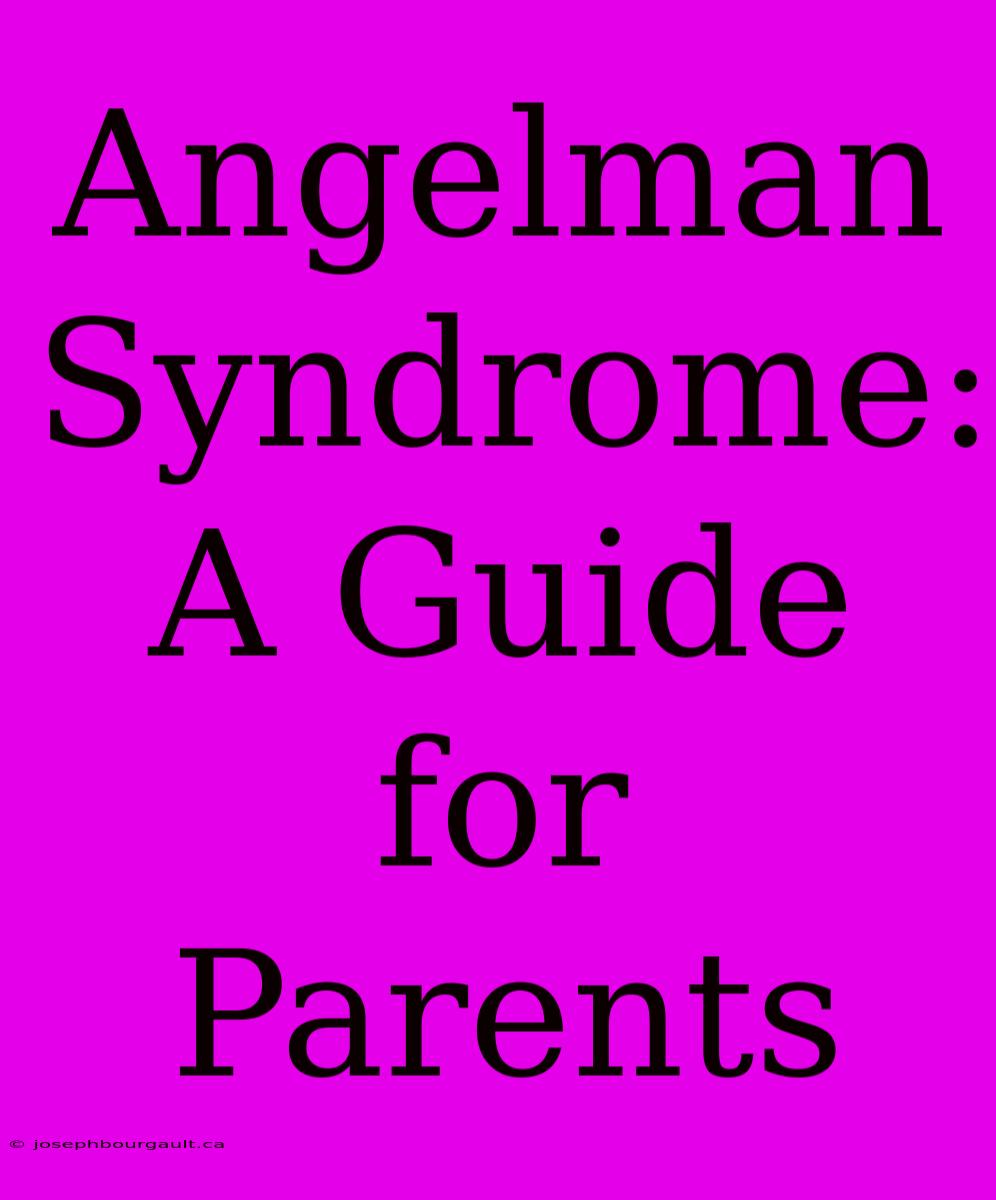Angelman Syndrome: A Guide for Parents
Angelman syndrome is a rare neuro-genetic disorder that affects a person's development and overall well-being. This guide is designed to provide parents with information about this syndrome, including its causes, symptoms, and available treatments.
Understanding Angelman Syndrome
Angelman syndrome is caused by a deletion or disruption of a gene called UBE3A on chromosome 15. This gene is crucial for the development of the nervous system. While the exact mechanisms are still being researched, the absence or malfunction of the UBE3A gene results in various developmental challenges.
Common Symptoms of Angelman Syndrome
Angelman syndrome typically presents with a combination of these symptoms:
- Developmental Delay: Children with Angelman syndrome often experience significant delays in reaching developmental milestones such as sitting, walking, and talking.
- Intellectual Disability: The severity of intellectual disability can vary, but most children with Angelman syndrome exhibit cognitive challenges that require ongoing support.
- Characteristic Facial Features: Individuals with Angelman syndrome often have distinctive facial features including a wide mouth, a prominent chin, and large, widely spaced eyes.
- Speech and Language Impairments: Communication can be challenging for children with Angelman syndrome. They may have difficulty with speech and language production, often relying on non-verbal communication.
- Happy Disposition: Despite the challenges they face, children with Angelman syndrome are often known for their happy, affectionate, and outgoing personalities.
- Movement and Balance Issues: Motor coordination and balance can be affected, leading to issues with walking, running, and other physical activities.
- Seizures: Seizures are a common occurrence in children with Angelman syndrome. These seizures can range from subtle to severe.
- Sleep Disturbances: Many children with Angelman syndrome experience sleep problems, including difficulty falling asleep and frequent awakenings.
Diagnosis and Treatment
If you suspect your child might have Angelman syndrome, it's crucial to seek professional medical advice. A geneticist can perform genetic testing to confirm the diagnosis.
There is no cure for Angelman syndrome, but early intervention and specialized treatments can significantly improve the quality of life for affected individuals. Treatment typically involves a multidisciplinary approach that may include:
- Early Intervention: This includes therapies like physical therapy, occupational therapy, and speech therapy to address developmental delays and enhance communication skills.
- Educational Support: Specialized education programs tailored to the needs of children with Angelman syndrome can help foster learning and social development.
- Seizure Management: Anti-seizure medication can help control seizures and minimize their impact.
- Behavioral Therapy: Behavioral therapy can help address behavioral challenges and promote positive social interactions.
- Supportive Care: Providing a supportive and loving environment is essential for children with Angelman syndrome. This includes understanding their unique needs and celebrating their strengths.
Support for Families
Raising a child with Angelman syndrome can be both challenging and rewarding. It is important to connect with other families facing similar challenges. There are several organizations dedicated to providing support and resources for families of individuals with Angelman syndrome:
- The Angelman Syndrome Foundation (ASF): The ASF offers a wealth of information, resources, and support to families affected by Angelman syndrome.
- The Angelman Syndrome Association (ASA): The ASA provides support, advocacy, and research funding for Angelman syndrome.
Conclusion
While Angelman syndrome presents unique challenges, it's important to remember that individuals with this condition are capable of learning, growing, and living fulfilling lives. With early intervention, supportive care, and a positive outlook, families can help their loved ones reach their full potential.
Remember, you are not alone. By connecting with other families and seeking professional support, you can navigate the challenges and celebrate the joys of raising a child with Angelman syndrome.

